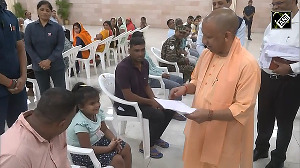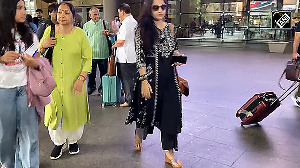With about 15 million TV homes in West and East Asia ready to receive un-encrypted sport signals beamed by Prasar Bharati on its direct-to-home service, Neo Sports, which has bought for Rs 2,714 crore (Rs 27.14 billion) the rights for all cricket matches in India for five years, stands to lose more than Rs 600 crore (Rs 6 billion) in the next three years.
The issue is behind the sport broadcasting company's ongoing battle with the BCCI on the one hand and the information & broadcasting ministry on the other. The government, through a bill passed today, has made it mandatory for sport broadcasters to share feed with Doordarshan.
But with the state broadcaster beaming un-encrypted signals on its DTH platform which covers the whole of West Asia, East Asia and even the UK, viewers there are getting the feed without paying a penny to Neo or its partners in these countries.
At present, the un-encrypted signals of DD Direct are also being received in Bangladesh, Hong Kong, Sri Lanka, Nepal, and Malaysia. These markets, according to Neo Sports, are 25 per cent of the size of the Indian cable market (65 million) and are also more lucrative.
Neo Sports has tied up with leading pay TV platforms in these countries. The broadcasting company has various agreements with its partners, which involve revenue share, minimum guarantee and even a flat fee. Subscription revenues vary from country to country but constitute between 25 and over 50 per cent of total revenues.
"With a sizeable Indian diaspora residing there, these countries are very important for us from subscription as well as advertising standpoint. Un-encrypted signals of DD Direct affect our contracts and we will lose considerable money," said Shashi Kalathil, chief executive, Neo Sports.
Nimbus executives say many of their partners are already talking about breach of contract (which states that the feed would be available exclusively to them) and this could lead to cancellation of agreements.







